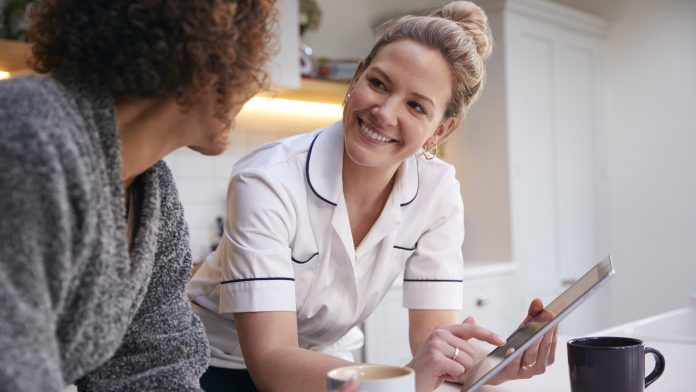
Irene Oldfather, Director of Strategy and Engagement at The Health and Social Care Alliance Scotland (the ALLIANCE) outlines some of the challenges associated with women’s health services and the significance of Scotland’s Women’s Health Plan.
The Woman’s Health Plan has been in preparation over two years. I was delighted to attend the inaugural meeting where we spoke of the challenges, hopes and aspirations for a plan. Unfortunately, COVID briefly interrupted the flow of work, but we very quickly moved to a range of digital platforms to ensure a strong base to hear the voice of women themselves in the formation of the plan.
As part of the design of the plan, the Health and Social Care Alliance Scotland (the ALLIANCE) set up a lived experience subgroup to ensure that the voices of Scotland’s women were at the centre. Our engagement used open and targeted digital sessions and an online survey to canvas the views of around 500 women across Scotland.
Barriers faced by women
It was sad but not surprising to hear from women about the stigma still attached to periods, menopause, contraception, and conditions like endometriosis. Collectively, it was felt that open discussion in schools and encouraging family and female role models to have comfortable conversations about puberty, growing up and periods was a good place to start. Some women from minority communities referred to such topics as taboo and outlined the need for an incremental approach, starting with a trusted person who could answer questions in private and in confidence, while longer term cultural shifts take place, including outreach from the NHS into communities to advise on services available and how to access them. The importance of health and social care professionals navigating cultural barriers in a sensitive way was stressed by women from ethnic minority and traveller communities.
One of the strongest themes running through the consultation was access to services. Women described often frustrating situations where walk-in clinics were so busy that time taken off work to access was wasted. Equally for unpaid carers, who too often put the needs of the person that they care for before themselves, accessing services in the right place at the right time is paramount.
Many women said they felt uncomfortable talking about intimate women’s health issues with male GPs but often felt challenged if they asked for a female doctor or interpreter. It is really important going forward that women do not have to explain a preference and that their requests are listened to. Some groups, particularly young people and those from ethnic communities, worried about the issue of confidentiality, which for some can be a barrier to accessing services. It is vital that whether these concerns are real or perceived, we make it clear that contact with a GP practice is always entirely confidential unless the person is endangering themselves or others.
In relation to abortion services, women want a telephone service to discuss options in a protected and private way. Once they had come to a decision, women want quick access to non-judgemental services.
Being taken seriously and being heard is something that we regularly hear from those who speak to health and social care professionals. The recent Cumberlege report – First Do No Harm – is a case in point. It has been uplifting to see in recent times the rights of women with mesh implants being addressed after a long campaign by women themselves. The ALLIANCE undertook a range of engagements with mesh injured women, and one of the clearest messages was not always having the right information or being listened to.
Enhancing women’s health services
Having been a member of the first Scottish Parliament intake in 1999, I was very struck that the high percentage of women MSPs did create a different and better opportunity very early on to raise issues around domestic violence, unpaid carers nursery education and so on.
Increasingly seeing women in politics and in government sets an aspiration for young women that anything is possible – “it is not where you come from but where you are going to that counts”. The Women’s Health Plan – by shining a light; recognising the need to address inequality and bring women’s health out of the shadows – sets an important tone and is a platform on which to build. But as with any policy document, the proof is in how we bring about changes. Services are an important part of the jigsaw but for all of us in our schools, communities, and workplaces there is a role to play. Each of us can contribute to this important piece of work by acknowledging, respecting, and promoting women’s health in Scotland.

In conclusion, I am very grateful to all women who gave up their time to help inform Scotland’s first ever Women’s Health Plan. It was good to have women themselves, including carers and those with mental health issues, at the front and centre of the work. From our previous engagement work at the ALLIANCE, we heard that women want to see a system which provides flexibility around their lives, both when accessing appointments and for treatment and support options. They want to be taken seriously no matter their concern, without feeling judged for their skin colour, culture or choices. The Scottish Government’s Women’s Health Plan has the potential to change and improve the lives of women and narrow the gender equality gap. As Chair of the Lived Experience Group, it is very heartening to see the publication of the final report. It is important that we all take ownership of this work in our workplaces, communities, and neighbourhoods. All of us can make a difference in different ways to ensuring that the women of Scotland are heard.
Irene Oldfather Former Member of the Scottish Parliament Director of Strategy and Engagement The Health and Social Care Alliance Scotland
(the ALLIANCE)
https://www.alliance-scotland.org.uk/§
https://twitter.com/ALLIANCEScot?ref_src=twsrc%5Egoogle%7Ctwcamp%5Eserp%7Ctwgr%5Eauthor
This article is from issue 20 of Health Europa Quarterly. Click here to get your free subscription today.










